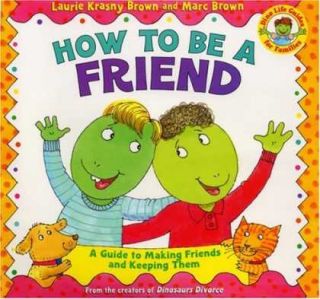Intelligence
Is There a Correlation Between Kindness and Intelligence?
Why being smart has nothing to do with being a good person
Posted August 26, 2013

You know that scene in Forrest Gump, when Forrest sends a check to Bubba’s mom for Bubba’s share of the shrimping business? Bubba’s mom, surrounded by her family on the porch, literally falls down from shock and sheer amazement.
I love everything about that scene. It’s so poignant and funny, but the reason the scene continues to linger in my memory, some 20 years after the film first came out, is that for Forrest, there was no debate or internal struggle about whether or not he should give the money to her. He didn't have to weigh the pros and cons of doing this good deed. To him, it wasn’t even a good deed. It was something that just had to be done.
Simple as that. That’s exactly how Forrest Gump lived every aspect of his life – he never questioned anything, yet always did the right thing.
As much as I’d like to, I don’t always do the right thing. Which makes me wonder, why do I live so differently from Forrest Gump?
Maybe it's his lack of self-awareness – of which I have a never-ending surplus. The consequences of self-awareness are constant debate and deliberation – too much thinking, not enough doing, right?
Why did that girl look at me that way? Does she hate me?
Why didn’t the barista ask if I wanted whipped cream? Does he think I’m fat?
Am I chewing too loudly? Am I eating too much? Am I thinking too much?
Does this inner dialogue sound familiar to you? These kinds of conversations are on repeat in my head on a daily basis. I can barely order a drink at a café without having to carefully analyze my relationship with my parents.

Gump, on the other hand, would order a Dr. Pepper without hesitation. He would not count the calories. He would not worry about getting fat. Gump would simply drink and enjoy.
Maybe our differences stem from our intelligence. After all, Gump was a dummy. His I.Q. was just 75.
An IQ between 70 and 80 indicates borderline retardation. Perhaps Forrest Gump’s goodness comes from the fact that he just didn’t know any better, because he couldn’t know any better?
But research doesn't seem to support this altruistic behavior. Lower IQs are linked to having suicidal tendencies, increased likelihood of going to jail, living in poverty and experiencing overall social failure. This hardly sounds like Gump.
Moreover, a Canadian study also found that “people with low IQs tend to be more in favour of harsh punishments, more homophobic and more likely to be racist.”
So far, not a great argument for less intelligence equals more kindness.
Then does this mean smarter folks are kinder?
Not necessarily, either.
Those with higher IQs are more likely to lie, think they are smarter than they actually are (arrogance), and are more likely to be self-destructive, due to supersaturated doses of curiosity.
Studies 

Studies
A fascinating recent study suggests: “in many instances, smarter people are more vulnerable to thinking errors.” In fact, “more cognitively sophisticated participants [a fancy way to say 'smart people'] showed larger bias blind spots.” The bias blind spot is essentially our ability to recognize other people’s flaws and mistakes.
Isn’t it funny how we can so easily discern the problems in other people’s lives but not so easily in our own?
So far, there doesn’t seem to be a connection between smarts and kindness. And that’s exactly the theory that Satoshi Kanazawa’s research supports.
“What intelligent people prefer is not good or bad, right or wrong, but what is always evolutionarily novel,” writes Kanazawa, an evolutionary psychologist at the London School of Economics.
So, smart people only care about the hot, new behavior in town:
“More intelligent boys (but not more intelligent girls) are more likely to grow up to value sexual exclusivity. This is because humans are naturally polygynous. Sexual exclusivity is evolutionarily novel for men but not for women, so more intelligent men are more likely to value sexual exclusivity than less intelligent men.”
Similarly, he suggests that intelligent people are more likely to be vegetarians, since humanity originally started out as omnivores.
Meanwhile, Kanazawa says not-so smart people are better at important things: like finding a mate, being parents and making friends. After all, these behaviors have always been a part of our evolutionary makeup. It’s the new stuff, like going to space or finding a job at Google that are the innovative challenges that intelligent people excel at.

Meanwhile, Kanazawa says not-so smart people are better at important things: like finding a mate, being parents and making friends. After all, these behaviors have always been a part of our evolutionary makeup. It’s the new stuff, like going to space or finding a job at Google that are the innovative challenges that intelligent people excel at.
According to his line of thinking, the less intelligent are actually better at cultivating relationships, which is fairly obvious in Gump's case.
As much as I’d like to consider myself intelligent or be seen as someone intelligent, I’ve come to realize that being a kinder person (not a smarter one) is the key to having a richer, fuller and more meaningul life.
I don’t know if that’s necessarily what a smart person would think, but it’s probably what Forrest Gump would.
Follow me at @ThisJenKim




